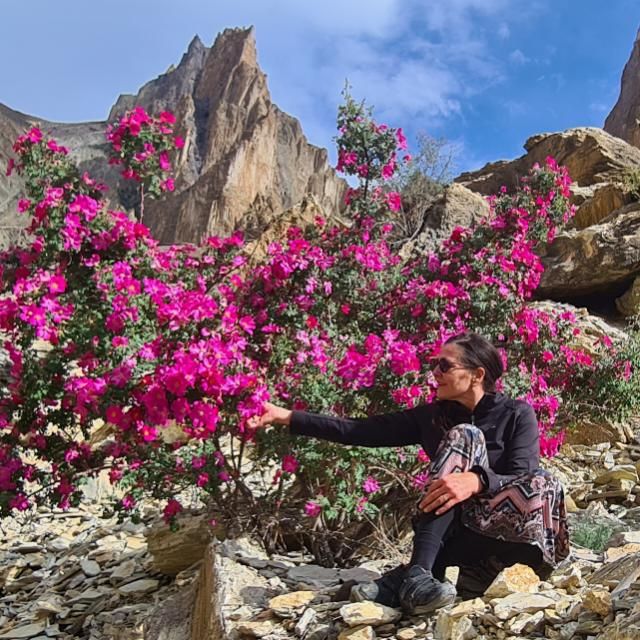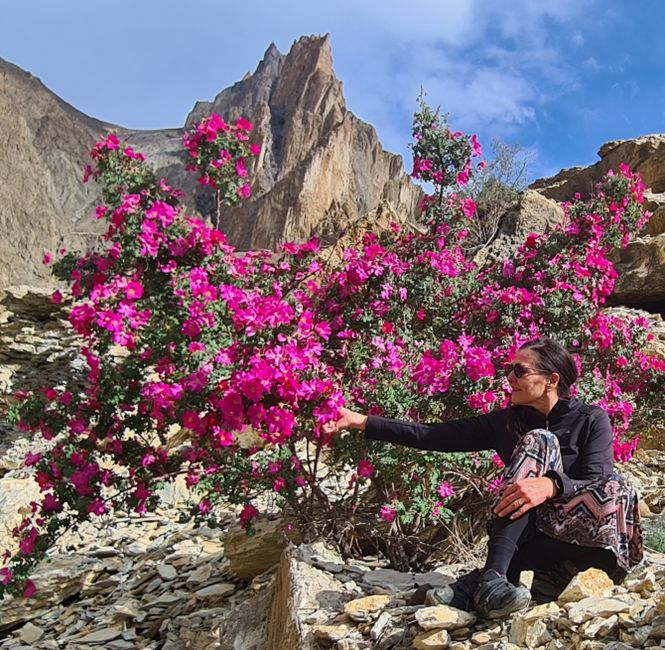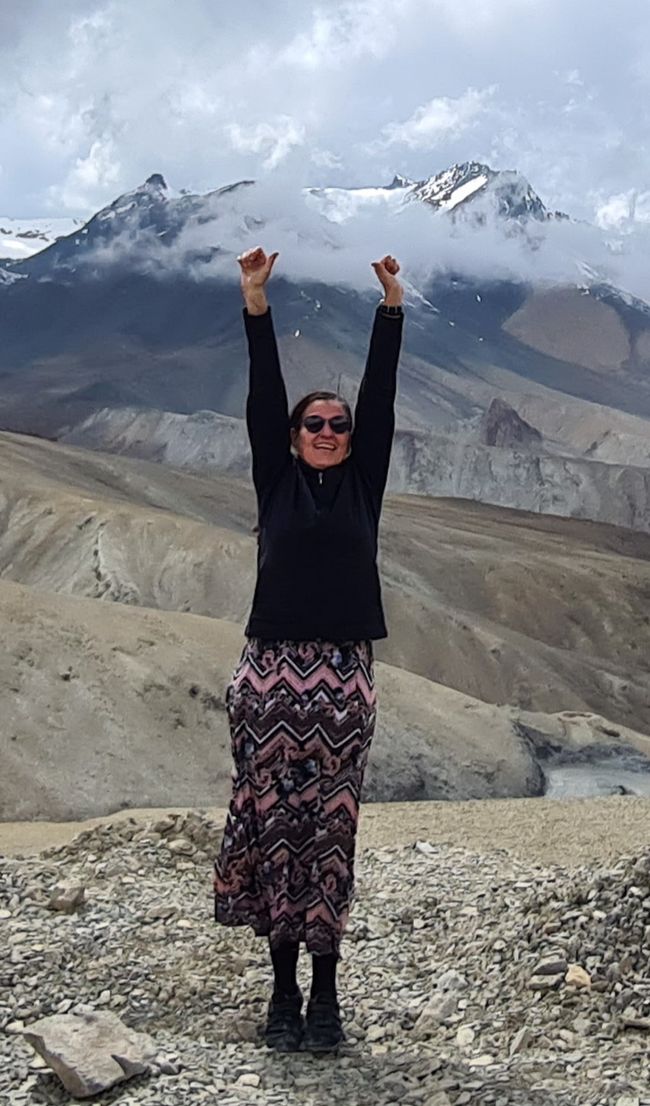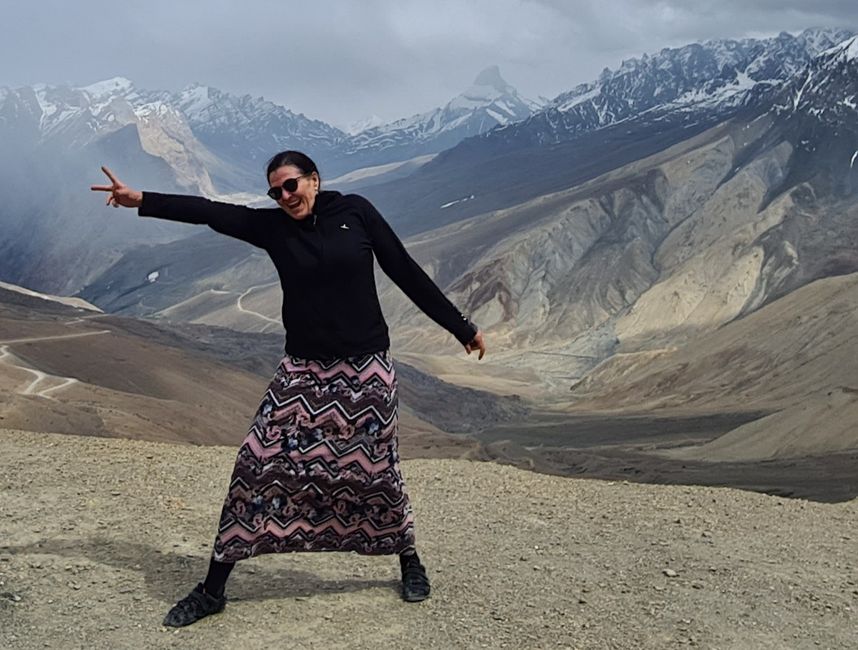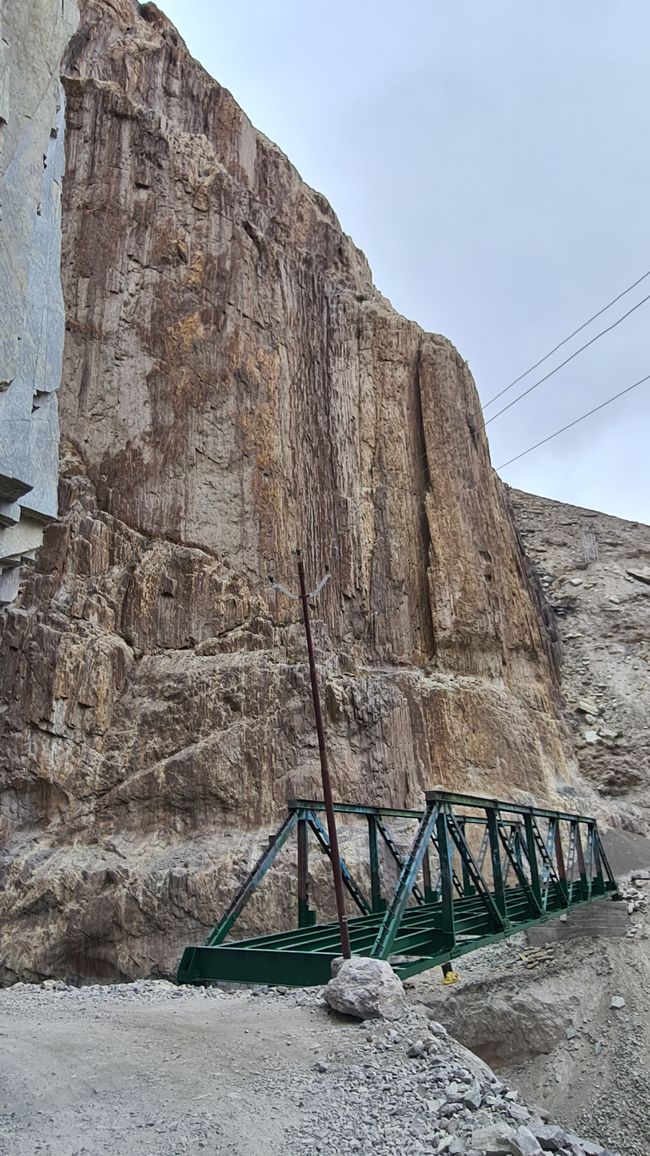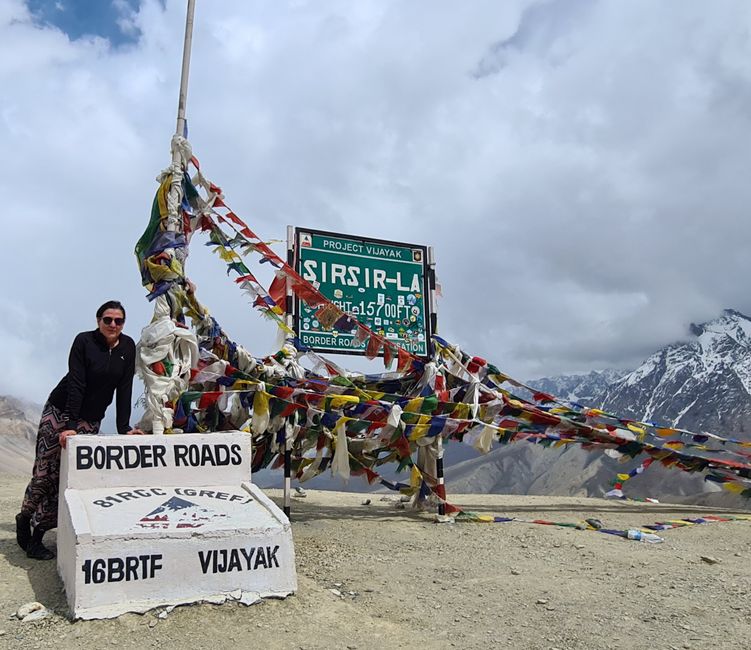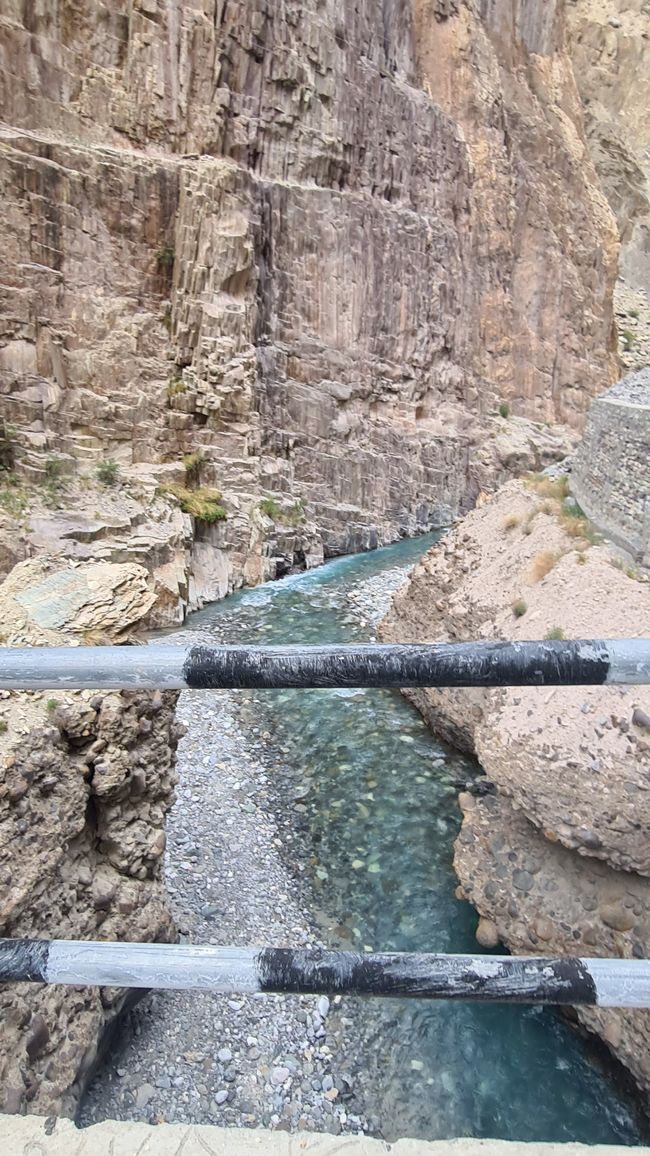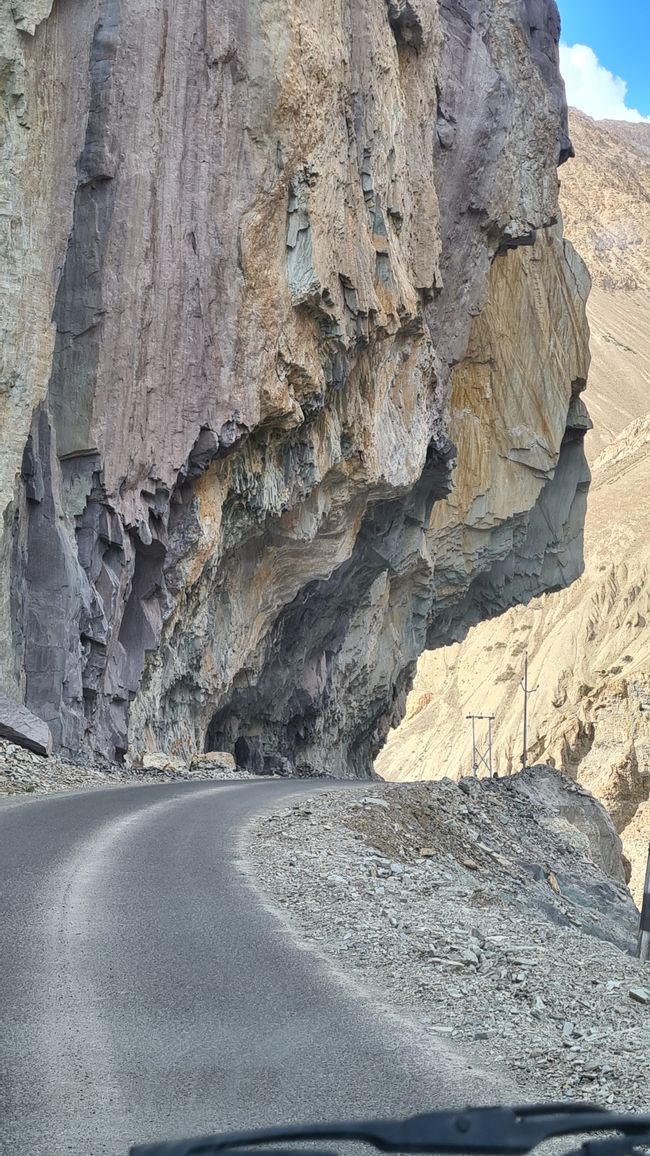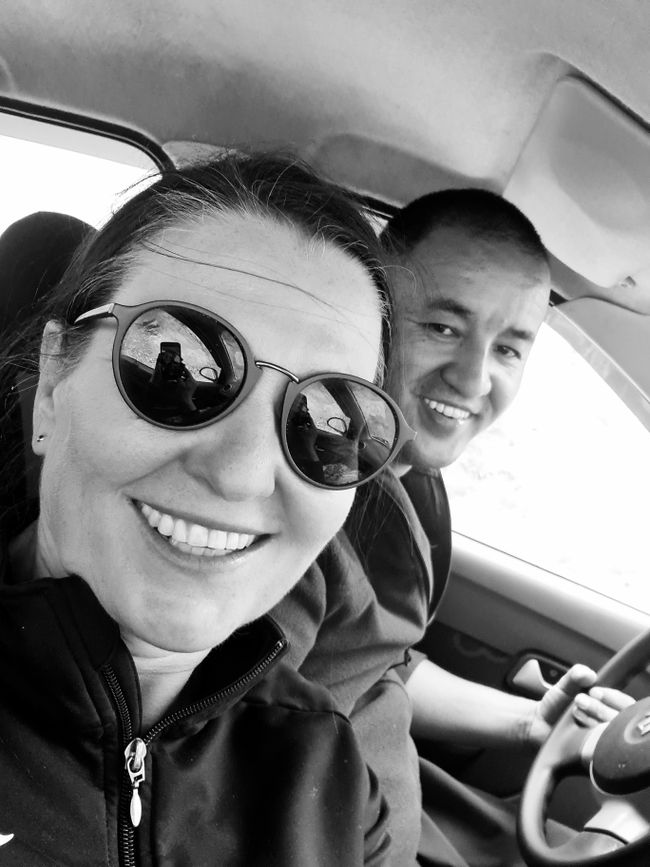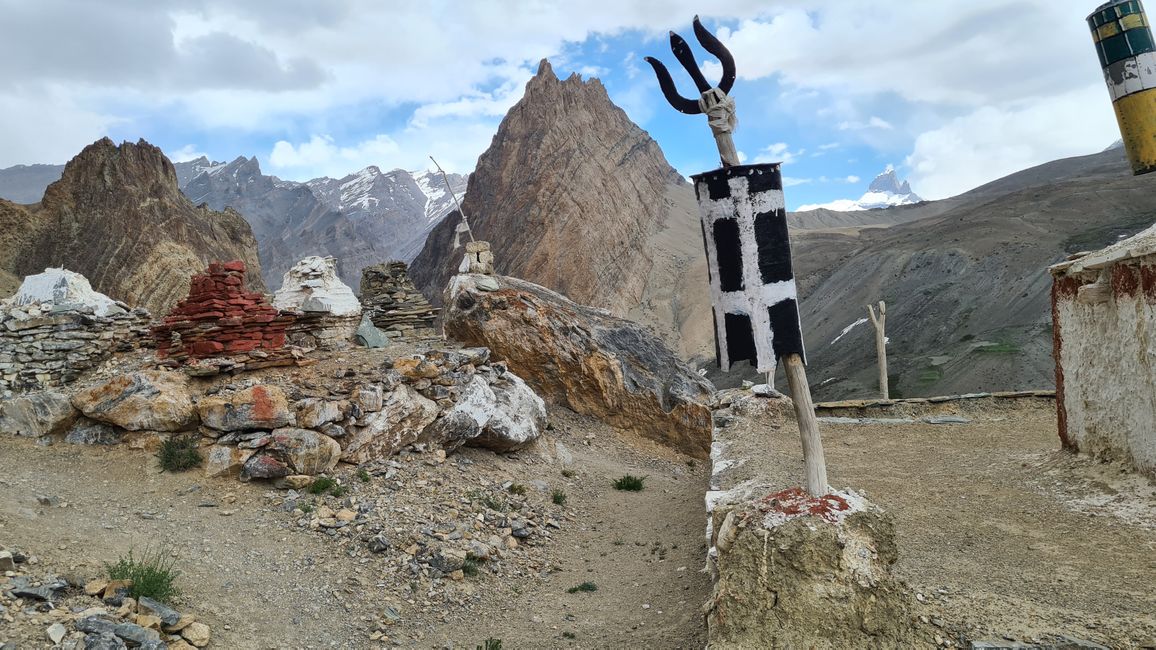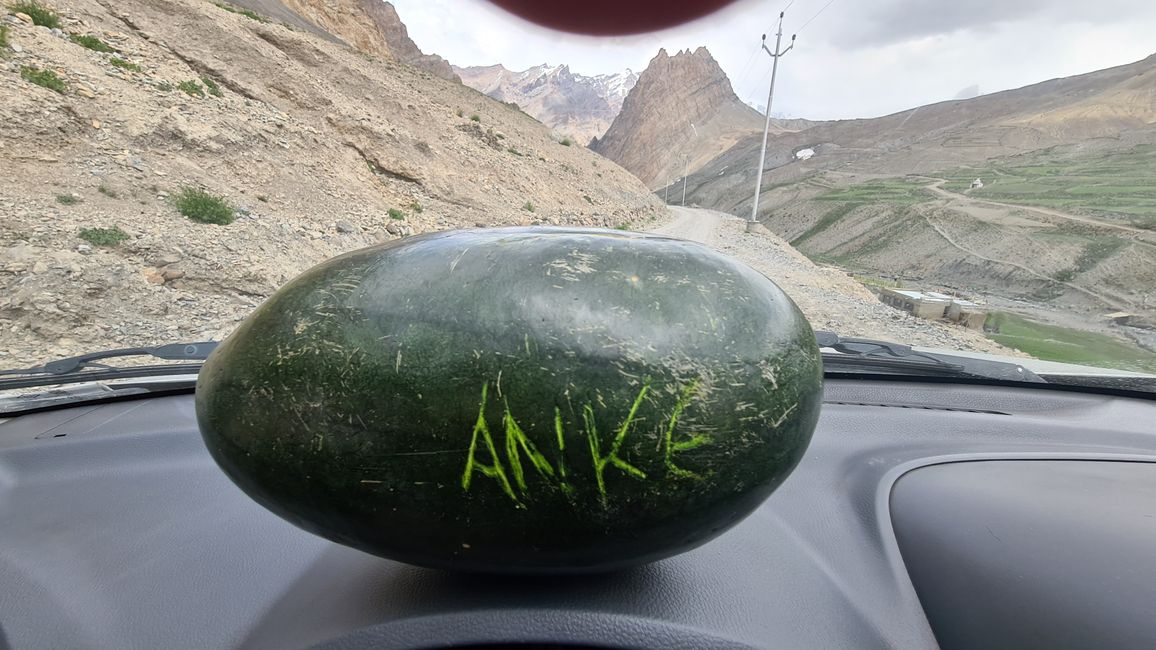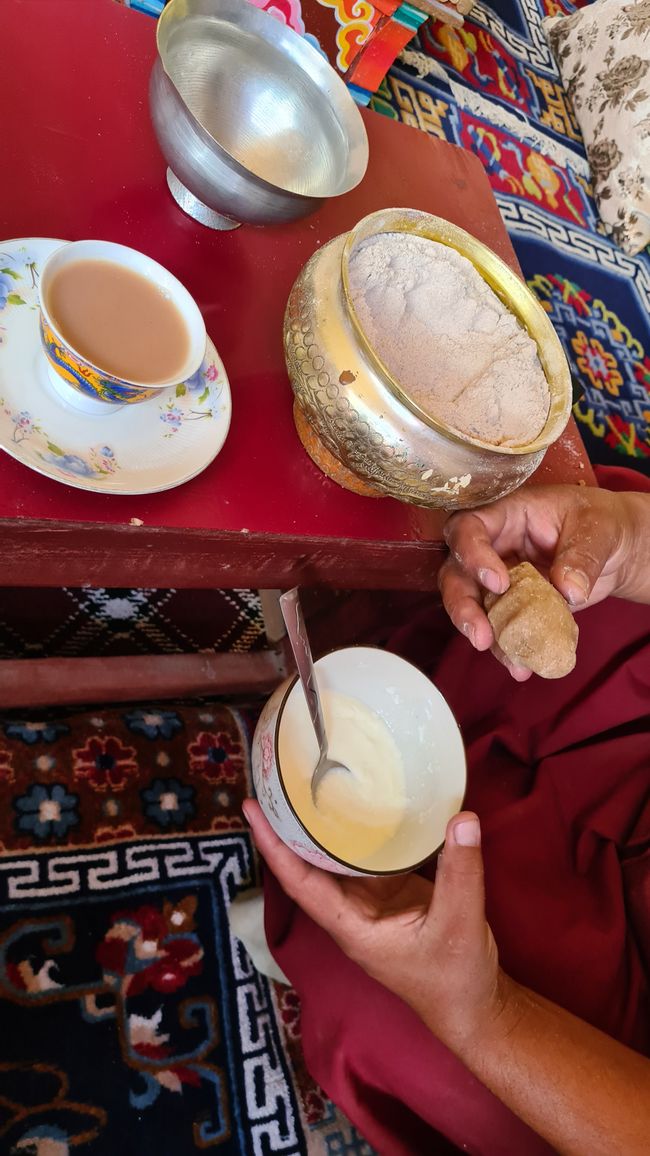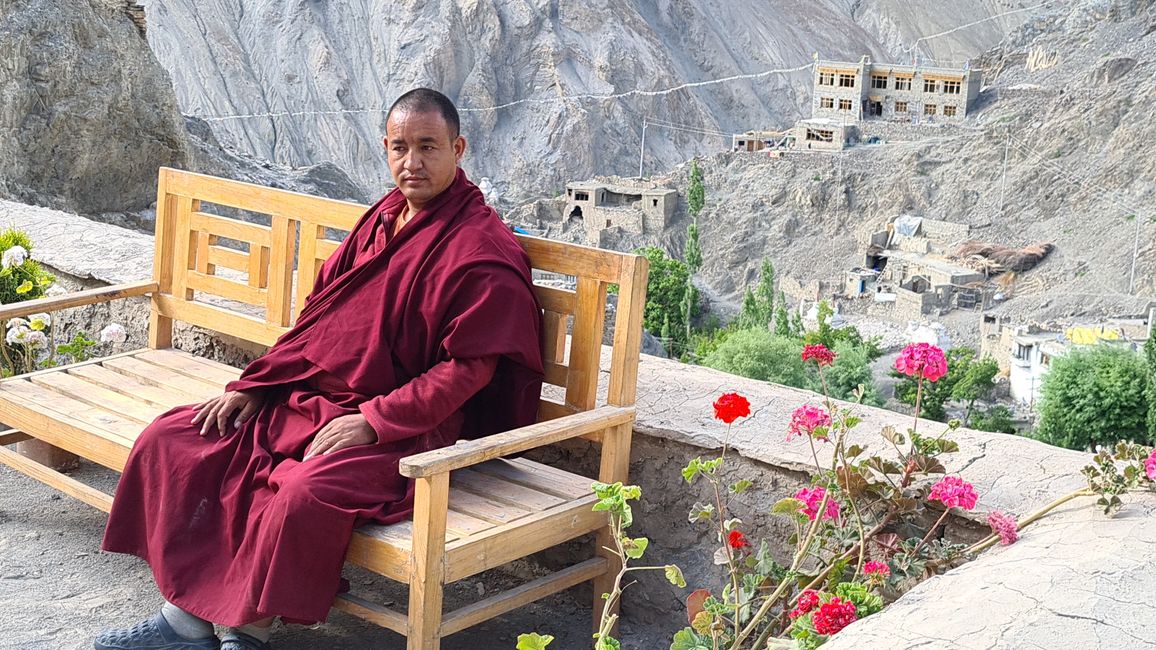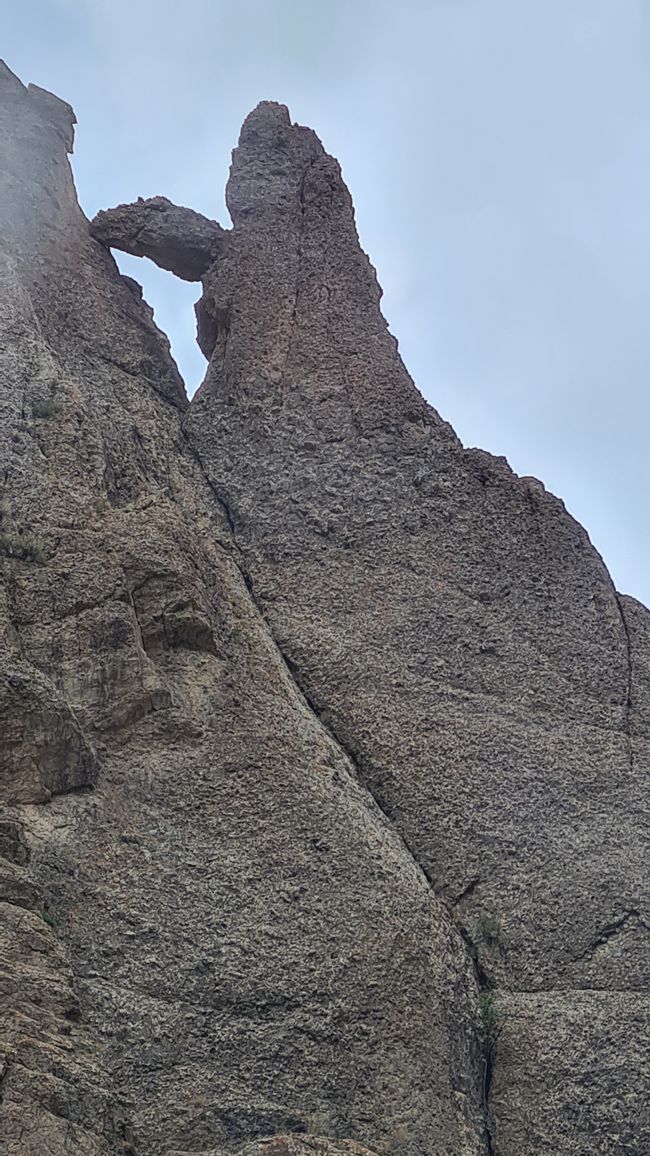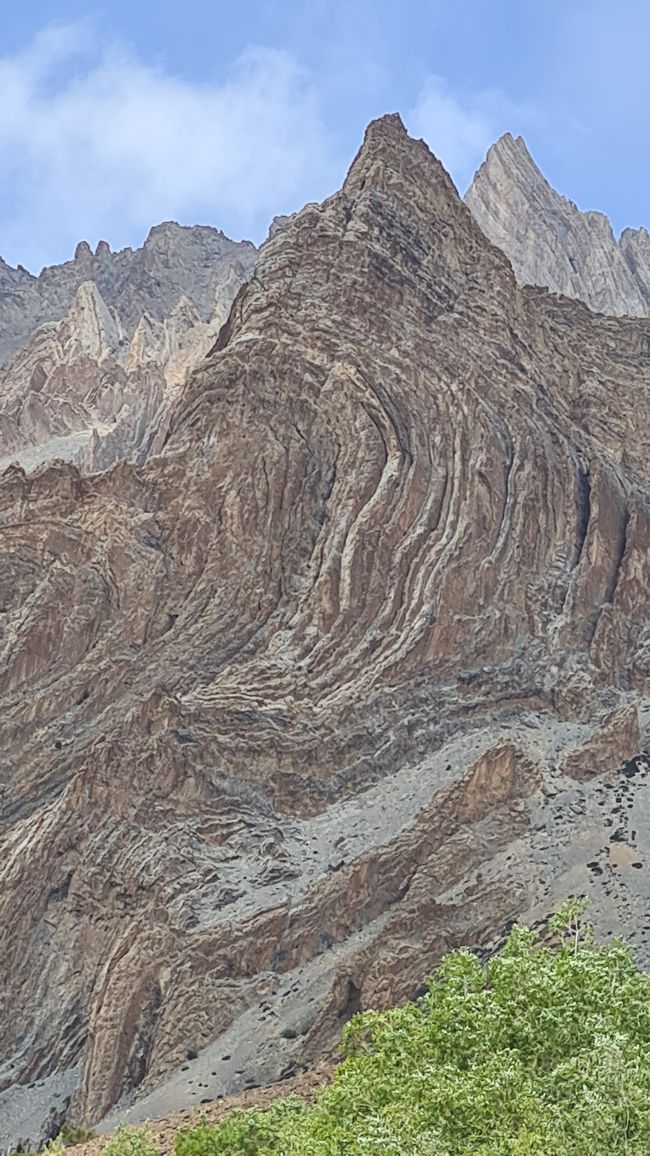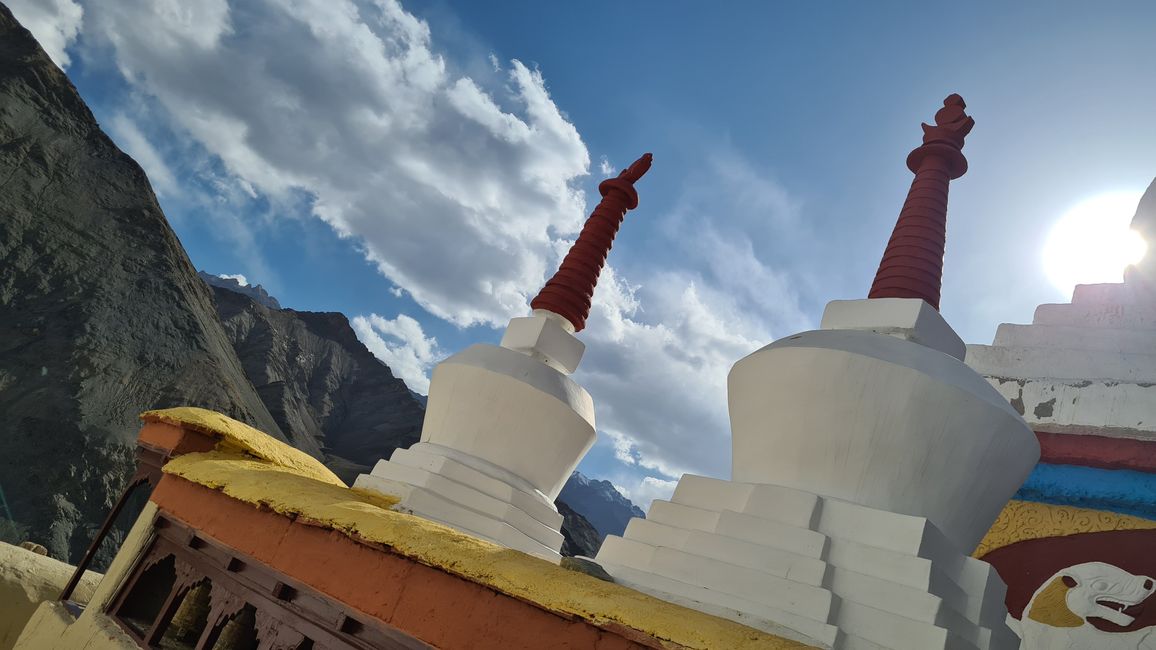Feeling high ...
प्रकाशित: 11.06.2022
समाचारपत्रस्य सदस्यतां गृहाण
Actually, a detailed report about my visit to the miraculous Atitse should appear here now. But I am struggling a bit with the research. And because the impressions from today are still so fresh, and there are also great pictures - in my opinion - I will instead tell you about my excursion today to one of the most remote and highest regions of the Himalayas.
Rugged cliffs and wild roses
Once again, it was Rangdröl who made this wonderful day possible. After breakfast and morning meditation, we set off towards Fotoskar or Fotoksar. Even on the signs, they are not in agreement here about how the western spelling should be. In any case, the way there is already an adventure. The pictures only give an approximate impression of how this incredible landscape impresses. Kilometer-high rugged rock formations, picturesque snow-capped mountains in front of a deep blue sky streaked with white sugar clouds - simply fantastic.
'Rappel' on the edge
Less fantastic is the gravel road hewn into the rocks, on which Rangdröl maneuvers us with his small Susuki at breakneck speed. I tell him about warning signs in France that demand the driver's attention with the warning 'Rappel'. I don't know how many times I cling to the handle of my door on this day and cry out in horror 'Rappel'. Rangdröl for his part seems to enjoy my panic and tells me that it often happens that big chunks fall from the cliffs above us and bury cars underneath them. Well, then, ...
The views that are offered to us more than make up for my panic. Wild rose bushes, thyme, and an herb that the monks use as incense grow at the roadside like weeds. Because here, next to the road, a picturesque stream gurgles over large boulders. This is how we go up the serpentine bends to an altitude of about 4800 meters. The snow-capped mountains draw nearer and it becomes noticeably cold. We pass through the village of Hanupata, but we don't linger there.
Zhampa and butter tea - count me out
It is now noon and our stomachs are rumbling. I already suspected this and brought along a watermelon as a precaution. They are plentiful here. However, it is less precautionary that I don't have a tool to cut it apart. But Ladakhis are pragmatic. Rangdröl grabs the watermelon, hits it against a rock once or twice, and the fruit is ready to eat. Two women and a boy from Fotoskar are delighted when Rangdröl also hands them a few pieces and they happily share our meal.
After this small snack, we head up to the monastery, for which Rangdröl has an estimated 40 liters of cooking oil in the trunk. The term cooking oil is not quite correct, as the oil is used solely to fill the butter lamps, with which light is offered as an offering. Rangdröl also has a few ceremonial utensils with him, which he brought especially for this remote village of 46 families from Nepal.
Always in the service of the lineage
It is truly impressive to see how this monk strives to be helpful in the service of Buddhism, and specifically the Drikung lineage. But the efforts do not always bear fruit. With a teacher from the village, Rangdröl inspects a building where two rooms for the monks should have already been built. However, so far the new construction only has windows, but no glass, no plaster, and judging from the piles of dung, it has so far mainly served as a stable. However, Rangdröl explains to me that this poor village receives no support at all. It is simply too remote. And so he does not hold it against the villagers.
The teacher then invites us to have tea at his home. Actually, we would like to continue driving, but saying no is not an option. Although I already suspect that there will definitely be butter tea. And anyone who has tasted it knows: I'm out. I leave this fat, salty tea behind and promptly get served sweet tea as an alternative. Actually, not really my thing either, but this time I accept it. Rangdröl also ensures that I don't have to participate in the lunch of butter tea, yogurt, and barley flour (Zhampa). It is truly a meal for people who need a lot of energy in this cold and at this altitude and who do not value spiciness. The chapatis and omelette that I am served instead are also dripping with fat, but much more welcome to my Western palate.
A grueling hike for a three-year-old
There is a big commotion when we say goodbye and head towards Wangla. A small village where not only my friend Tonyot lives and oversees the local monastery, but also a place I have known since 1995. However, at that time I explored this village with my only three-year-old daughter Amira on foot from Lamayuru. The road to this mountain village, crossed by a clear river, has only existed for a few years. The memory of how Amira persevered with her little legs and how she burst into tears at the sight of a horse skeleton along the way, rises up in me. Back then, the little one (she'll kill me when she reads this) gave up only on the way back, 20 meters from our accommodation. She only wanted to climb the last hill on my arm. 'Mama...!' Was naturally allowed.
Holiness and Bollywood
There is currently a large gathering of the village community underway in Wangla. All the villagers are already in great excitement because the head of our lineage, His Holiness Drikung Kyabgön Chetsang Rinpoche, is in Ladakh and will visit Wangla and many other places to give teachings there. In addition, the Dalai Lama is expected - which does not diminish the tension.
In Lamayuru, a Bollywood crew is currently a guest. The 700-inhabitant village is completely occupied. It's a bit annoying. After all, I'm here to have a little less hustle and bustle. Meditation when about 50 nuns next door are shooting some Shaolin blockbuster? No go! So now it's almost 9 p.m. Lights out here. So, good night - and of course, see you soon. Hopefully with more information about the miraculous Atitse...
समाचारपत्रस्य सदस्यतां गृहाण
उत्तरम्

